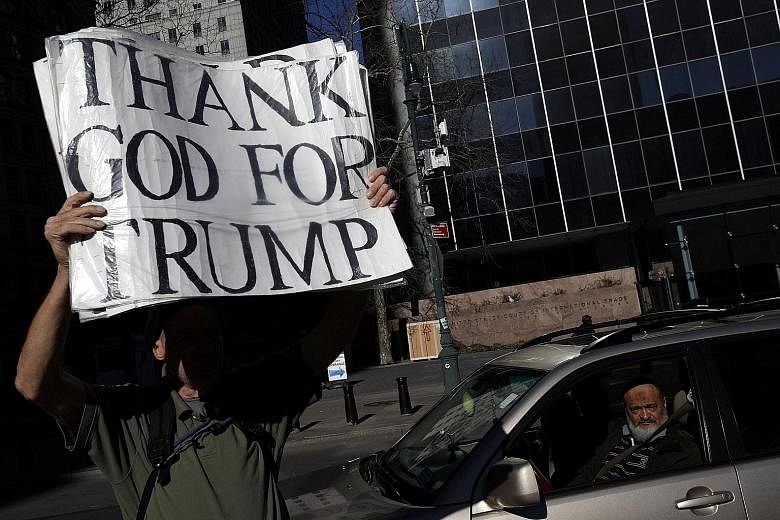LOS ANGELES • US President Donald Trump's revised travel ban is facing mounting new legal challenges as the state of Washington as well as several other states vowed to block the new executive order.
Washington's announcement on Thursday came one day after Hawaii filed the first suit challenging the controversial new directive, which temporarily closes US borders to all refugees and citizens from six mainly-Muslim countries.
Washington's Attorney-General Bob Ferguson, whose state was the first to sue over Mr Trump's initial travel ban, which created airport chaos worldwide and was eventually blocked, said at least three other states - Minnesota, New York and Oregon - are expected to join in the new legal battle.
Mr Ferguson said his motion calls on the court to apply an existing injunction against the first travel ban issued in January to the new executive order unveiled on Monday.
"My message to President Trump is - not so fast," Mr Ferguson told reporters. "After spending more than a month to fix a broken order that he rushed out the door, the President's new order reinstates several of the same provisions and has the same illegal motivations as the original," he said.
"Consequently, we are asking Judge (James) Robart to confirm that the injunction he issued remains in full force and effect as to the reinstated provisions."
Although the revised order was narrower in scope, it still could be challenged on constitutional grounds, said Mr Ferguson.
The new order denies entry into the United States to all refugees for 120 days and halts for 90 days the granting of visas to nationals from Syria, Iran, Libya, Somalia, Yemen and Sudan.
It is due to take effect on March 16. The first order had also applied to citizens of Iraq, but the country was dropped from the new list.
Hawaii filed the first lawsuit over the new ban on Wednesday. "This second executive order is infected with the same legal problems as the first order - undermining bedrock constitutional and statutory guarantees," said the suit, which was filed in a federal court in Honolulu.
Judge Derrick Watson put the suit on a fast track, scheduling a hearing on whether to impose a national restraining order on March 15.
The White House cites national security in justifying the ban, arguing that it needs time to implement "extreme vetting" procedures to keep terrorists from entering the country. It comes amid a broader US crackdown on undocumented immigrants, following Mr Trump's campaign promises of deportations and building a Mexican border wall.
Homeland Security Secretary John Kelly on Wednesday said the orders toughening immigration enforcement have driven down illegal entries - as measured by apprehensions at the border - by 40 per cent from January to February.
Polls show that US public opinion is deeply divided on the issue, with most indicating a slight majority of voters are opposed, but with strong support among Mr Trump's political base.
AGENCE FRANCE-PRESSE

